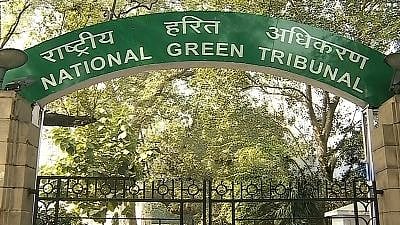NGT orders over ₹1.67 crore compensation for environmental damage and crop loss to 31 farmers in Nanded | Photo: Representative Image
Mumbai: The National Green Tribunal (NGT) has directed M/s Twenty-One Sakhar Karkhana (TSK), a sugar mill located in Nanded, to pay a total compensation of over Rs 1.67 crore for environmental damage and crop loss due to pollution.
The Tribunal ordered TSK to deposit Rs 1,13,40,000 with the Maharashtra Pollution Control Board (MPCB) under Environmental Damage Control (EDC). The MPCB has been directed to utilize the amount for restoring the environment in the affected areas within six months.
In addition to the environmental penalty, TSK has been directed to compensate 31 farmers with a sum of Rs 54,43,955 for losses incurred due to pollution allegedly caused by the factory’s Unit No. 3. The compensation will be disbursed by the District Collector of Nanded within one month of deposit, based on an average assessment of crop yield loss and market value.
The ruling comes in response to a petition filed by farmer Kapil Baliram Bomnale and 30 others, who alleged that TSK discharged highly polluted effluents into nearby agricultural lands and streams without proper treatment. They claimed that untreated emissions and improper disposal practices severely impacted crop yields, soil quality, and water sources, thus endangering the livelihood and health of local communities.
The NGT had constituted a Joint Committee to investigate the matter. The Committee’s report revealed serious and repeated violations by TSK, including, Discharge of treated and untreated effluents beyond permissible limits into natural drains that connect to the Godavari River, Air emissions exceeding standards, with particulate matter levels recorded at 153 mg/Nm³ (against the permissible 150 mg/Nm³), Poor maintenance of bagasse storage leading to the spread of soot particles over surrounding farmland and illegal and unregulated pipeline systems lacking basic identification, raising concerns about undisclosed discharges.
Water samples from nearby ponds and wells showed dangerously high levels of Biochemical Oxygen Demand (BOD) and Chemical Oxygen Demand (COD), indicating contamination due to industrial discharge. Groundwater samples collected near the factory also pointed to pollution caused by percolation from spray ponds.
“Though soil quality had not yet deteriorated significantly, agricultural produce from the area was reportedly coated with bagasse soot, rendering it unsellable or significantly less valuable in the market,”reads the order copy.
The Tribunal thus upheld the Committee’s findings, stating that a fair average was derived from both yield loss and market rate estimates. The company has been given two months to make the payments.
